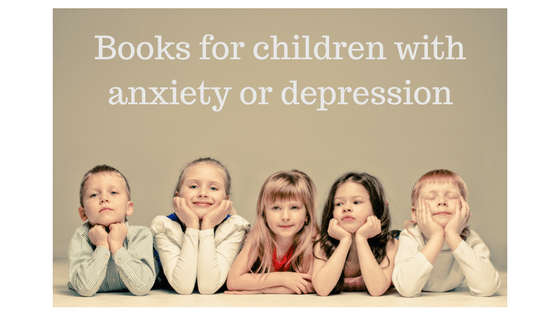Dr. Susan Corapi, a specialist in children's literature, recently asked me to comment on several books for children with anxiety and depression. She wanted to know how accurate these books were from a psychological point of view.
I asked Dr. Corapi about the goal of books for children with anxiety and depression. She explained that the goal is not to give help in a clinical sense (diagnosis and treatment). Children's books are supposed to be windows and mirrors. The mirror is so that a child in a similar situation can see him or herself and not feel that they are alone, and can develop a new understanding about the situation. The window gives kids who do not share the situation a window into understanding what life is like for their friend or neighbor or family member.
Books for children with depression
From a psychological perspective, I recommend Virginia Wolf by Keo McLear. The book deals with child depression and ways to manage and overcome it.
"... the book is ultimately a feel-good celebration of the power of the imagination and art to create perfect places in the world when none can be found."―Booklist
"Vanessa's act of love is recounted with grace and sensitivity in this remarkable collaboration."―Publisher's Weekly
"... an ambitious story about girlish blues, sisterly differences and the healing power of art .." — New York Times
Evidence-based treatment for depression: Cognitive-behavioral therapy (CBT)
In Psychology, as with any science, we're interested in "evidence-based" treatments - those that research has shown are effective and really help people. With depression, the evidence-based treatments are generally agreed to be cognitive-behavioral therapy (CBT) and medications or a combination of both. CBT is preferred because there are no side-effects.
Cognitive-behavioral therapy (CBT): Refocus and reframe your perspective
There are two core tenets for cognitive-behavioral treatment. One is "cognitive" which is helping the person think about situations differently. The depressed person is typically focused on negative thoughts/assumptions and actually filters out (ignores) the positive. In CBT, the therapist challenges those assumptions and helps the person think about the situation in more realistic terms. For example, if someone is depressed, they may be thinking "nothing ever goes my way." In CBT we would help that person re-frame that perspective to something more realistic like "this one situation did not turn out exactly as I wanted, but that doesn't mean that NOTHING EVER goes my way. There are actually many things that are good in my life..." This statement describes the reality of positives and negatives more realistically. CBT tries to get the person thinking more realistically and to think in ways that help them be more effective and achieve their goals in life.
Cognitive-behavioral therapy (CBT): New behaviors
The other part of CBT is "behavioral" which is helping the person engage in new behaviors. For example, recommending that a depressed person get exercise and participate in activities that take their focus off the negative and off their depression.
Virginia Wolf effectively describes depression
The book effectively describes what depression feels like: bright becomes dim and up becomes down. Individuals experiencing a depressed mood often feel sad, “blue”, pessimistic, lethargic, irritable, apathetic, worthless, and / or hopeless. Difficulties concentrating and making decisions are common. They often experience problematic changes in their sleep and appetite, such as eating and sleeping more than usual, struggling with insomnia, or not feeling like eating much at all.
Virginia Wolf effectively uses cognitive-behavioral techniques
In Virginia Wolf, the character helps her sister focus on positives in life, for example the garden, rather than negatives. In that sense, this a very basic cognitive-behavioral approach (re-focusing and re-framing). Also the fact that there is a loving, trusted person helping (the sister) is part of effective therapy.
Virginia Wolf is recommended
In short, Virginia Wolf hits important points about depression in a very simple story that reader's of all ages can appreciate. It's recommended for children who are experiencing depression themselves or to learn empathy for others who are experiencing depression.



